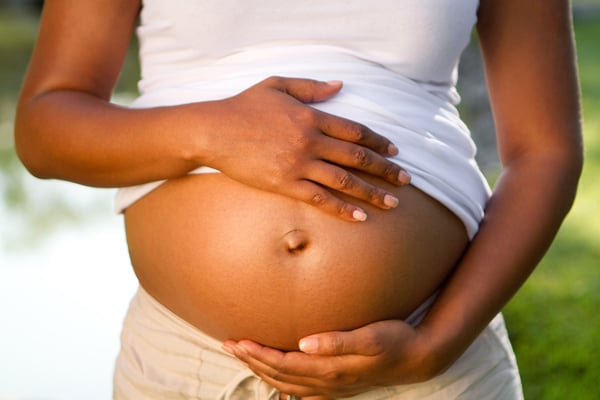Prime
Pregnancy six weeks after giving birth

A pregnant woman. PHOTO/FILE/NET
What you need to know:
- Ovulation, which may lead to pregnancy and delivery, may occur earlier than six weeks or before a mother’s next postnatal visit, which is usually done around six weeks (or 25 days) after giving birth.
My wife is pregnant again yet our youngest child is only six weeks old. Is this normal and how soon can a woman get pregnant after giving birth? Araali
Dear Araali,
Ovulation occurs when an ovary releases an egg, which if fertilised, a woman may become pregnant. How soon a woman ovulates after delivery varies from woman to woman, but may be delayed by breastfeeding, use of contraceptives or stress, among other reasons. Therefore, some women may get pregnant earlier than others after delivery.
Ovulation, which may lead to pregnancy and delivery, may occur earlier than six weeks or before a mother’s next postnatal visit, which is usually done around six weeks (or 25 days) after giving birth.
Mothers are usually advised to start engaging in sexual intercourse six weeks after delivery; a time when their tissues have healed properly and a PAP smear for cancer of the cervix has been done. However, it is possible for a woman to become pregnant before this time.
If a woman gets pregnant earlier than six weeks, she may suffer from pregnancy complications since she may not have healed properly from the previous pregnancy or may have missed their postnatal visit. The baby may also suffer complications since the mother may not be ready physically, financially or otherwise, making it difficult to look after a baby who may have come too early.
Please visit a nearby antenatal clinic for assistance but do not abort the baby.
How do I carry out a DNA test?
I started a relationship outside my marriage where I have seven children (six girls and a boy). However, a doctor had previously told me that I cannot father boy children. Could it be that the boy is not mine? K.K
Dear K.K
A number of men have ended up siring many children with different women while looking for a boy or girl child.
Some believe trying with other woman will finally gift them their preferred gender while others apportioning unwanted gender blame on their wives have acquired concubines with some getting the gender of their choice while others have still got the same one as from their wives.
Much as literally the sex of the offspring is determined by a man who has sex inheritance chromosomes XY, a woman (XX) is also important in determining the sex of the offspring. If the man’s X chromosome fertilises a woman’s X chromosome egg, the resulting baby will be a girl and if a man’s Y chromosome sperm fertilises the woman’s X chromosome egg, it will be a boy.
But inheritance is not just about supply of this or the other chromosome because many factors both in the mother and father may be involved in determination of which sperm fertilises the egg.
Today, the commonest DNA tests in our laboratories are done for paternity tests and, therefore, you do not have to get embarrassed doing the same DNA tests to prove that the child is yours instead of living in doubt.




